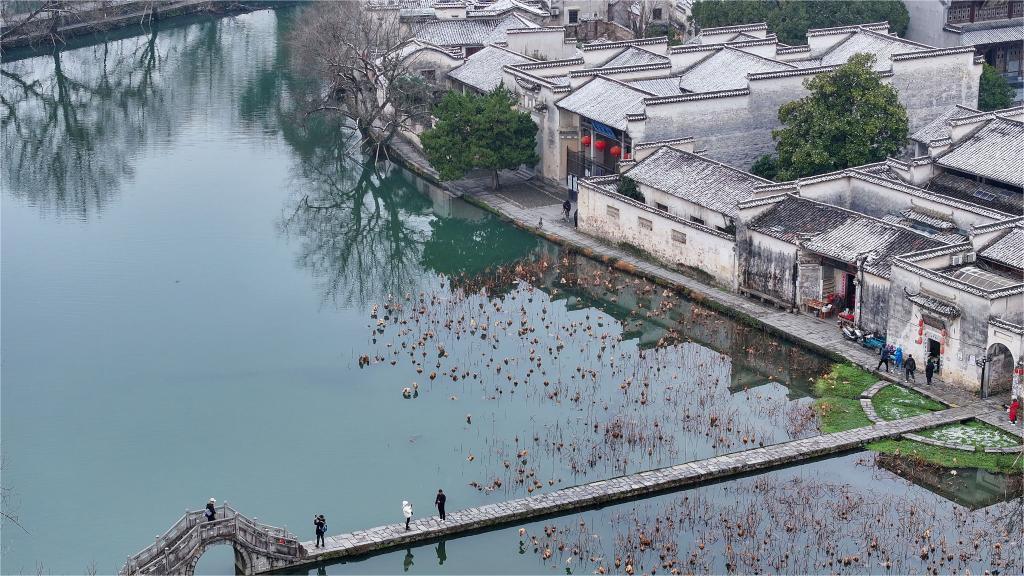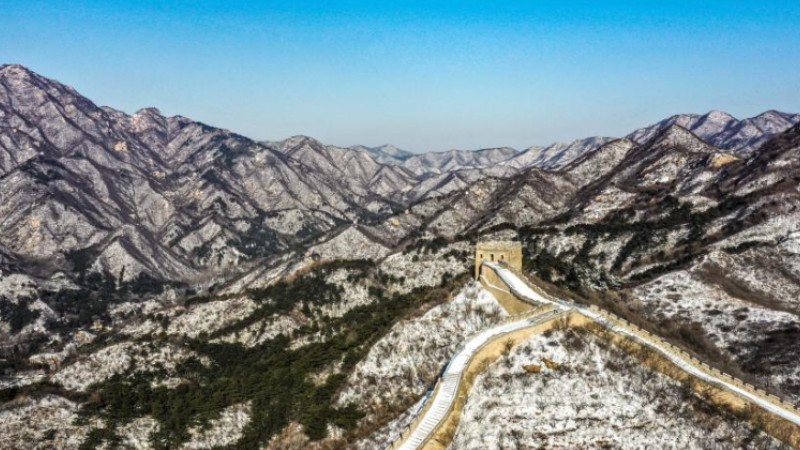Cascading waves of earth add to quake nightmare

Rescuers search for survivors on Wednesday in Minhe county, Haidong, Qinghai province, after a sand boil triggered by Monday's earthquake left homes buried in mud and debris. Many houses that survived the temblor sank to the ground after the sand boil, a natural phenomenon that occurs when groundwater under pressure after an earthquake comes out to penetrate the sandy layer. TIAN WEITAO/FOR CHINA DAILY
Stricken villagers in Qinghai battle way through deep mud and debris
More than two days after a magnitude 6.2 earthquake hit Jintian village, Qinghai province, Kong Lingping watched from a distance as bulldozers continued to remove mud and debris, as hopes faded of finding the last nine people missing in the area.
Kong, 42, said: "The roof of my house looks as though it has split down the middle, but my family is fine.
"I heard that one member of a family, who is in his 80s, survived, but his two sons and grandson died in the quake. He is staying at a shelter and barely talks at present. This must be so painful for him."
Behind Kong, villagers resettled in shelters on open ground lined up at a temporary stall offering free beef noodles, peering expectantly at the boiling broth.
A rescuer wearing a yellow helmet said, "Under such circumstances, a bowl of hot beef noodles can solve many problems."
The rescue worker gobbled down his noodles in just one minute, finishing off with a large sip of soup before dashing off to join his colleagues transporting and organizing donated supplies — routine work they have performed day and night since the quake struck on Monday.
A scene of deep grief mixed with hope is unfolding across the remote village of Jintian, which has a population of about 1,800.
At least 135 people died and nearly 1,000 were injured when the quake struck Qinghai and neighboring Gansu province late on Monday evening. As of Thursday afternoon, 12 were still missing, including nine in Jintian.
The village is situated about 16 kilometers from the quake's epicenter in Gansu, separated by a stretch of the Yellow River.

Rescuers work in Jintian village, Haidong, Qinghai province, where layers of earth tumbled from a slope and submerged residents and houses after Monday's earthquake. LI ZHANYI/XINHUA/LI KAOJUN/FOR CHINA DAILY
In addition to the trauma caused by the quake, the village was hit by waves of earth churning like water that crushed houses in a phenomenon known as liquefaction or sand boil.
Memories of the horrifying moment when layers of earth tumbled down from a nearby slope differ between the villagers, but they were all shocked and panicked by the incident.
"The mud, which appeared to be four to five meters deep, cascaded down and destroyed all the trees and buildings in its way," Kong said, pointing at a vast patch of land that had sunk at least three meters into the ground.
"Standing here again makes my hair stand on end," he added.
Kong was one of the first villagers to rush to houses that were submerged and buried under the mud, in an attempt to rescue those who were trapped.
"A child was trapped in the mud, so we grabbed his arm to pull him out, but we eventually failed. My memory of that night is something of a blur," he said.
Yang Delu, Party chief of Jintian, was asleep when the quake woke him. "I ran outside, where the thick yellow mud looked as though it was two to three meters deep. I had no idea where it came from, so I immediately called higher authorities to seek assistance," he said.
Ma Guangjiong, a 67-year-old resident living on the perimeter of the village, who was watering his crops in a field when the quake struck, has listened to accounts of collapsed houses being buried deep in the mud.
"The sky somehow turned red at that moment. I thought that a nuclear bomb had been set off on the night of the earthquake. We knew people who died during the quake, because we worked together on the farmland for years. It is such a tragedy," he said.
Some cracks appeared on the roof of Ma's house, but the main structure remains intact. He and his wife have spent two nights at a communal shelter.
"We also received a tent from the Red Cross that we can pitch in front of our house to accommodate my family and neighbors," he said.

Rescuers continue clearing mud from Jintian. ZHANG LONG/XINHUA
A total of 36 households were demolished by the roiling earth, and most of the remaining homes were also damaged, making them unsafe.
"I think I will sleep in tents for the coming days. It is cold because of a lack of stoves and quilts, but I feel much safer staying there than sleeping in my house," Ma said.
With the temperature likely to fall to minus 15 C in the evening, the mud and sediment blocking the roads are frozen into small mounds coated in thin ice. During the day, the ice shimmers in the sun.
An Jun, an official with the Qinghai branch of the Red Cross Society of China, said diesel fuel that is supposed to withstand temperatures far below 20 C is frozen hard as a rock in the evening.
Red Cross officials erected 43 tents at a resettlement shelter on Tuesday afternoon, An said.
"The first night was excruciatingly cold. Each tent is designed to shelter four people, but we had to fit six in one of them due to the large number of displaced villagers and volunteers spending the night here. It was actually better that way, as more people huddling together create warmth," An said.
More relief supplies and rescue workers are heading toward Jintian.
Yang, the village Party chief, said that as of Thursday afternoon, he had only taken a nap since the quake struck. Grabbing a discarded bottle of water from the roadside, he poured some of the contents over his face to refresh himself.
"I don't have time to sleep, chat or wash myself. Before night falls today, I must distribute jackets and quilts to the villagers," he said.
An added that he expected Thursday night to be a little more comfortable, thanks to shipments of coal and heating stoves that arrived in the past two days.
"Local residents are used to setting up a heating stove in the center of their homes to keep warm in winter. Putting them in a tent not only dispels the night chill to some extent, but also makes them feel more at home," he said.
Around 5 pm on Thursday, a team of Red Cross workers who specialize in setting up sanitary toilets in disaster-stricken areas arrived in the village.
"There is so much more to do for the villagers affected by the quake, but I think that in the shelters, lives are slowly getting back on track, with villagers' basic demands being met," An said.
In addition to collecting materials to withstand the cold, the main priority in Jintian on Thursday was clearing mud from the roads.
Officials did not give a specific time for the mud-clearing work to be completed. The only main road leading to the village was closed to most vehicles on Thursday, except for trucks tasked with removing the mud.
At least 10 cranes and excavators were stationed near mud-covered areas. Every few minutes, a truck loaded with mud and debris was driven out of the village.
Han Chenglu, who lives in Bazigou village, Qinghai, about 100 km from Jintian, is one of six cooks and staff members working together at the beef noodle stall.
"Seeing these quake-stricken communities in person is completely different from reading about them in the news. Some villagers still have tears in their eyes when I hand them a bowl of noodles," he said.
The stall opens around 10 am and does not close until all the villagers have gone to sleep at night, he said, adding, "We are striving to make a small contribution to help those affected by the quake."
Photos
Related Stories
- Orderly relief efforts continue in quake-hit Gansu
- 784 under treatment in hospital after earthquake in China's Gansu
- Emergency relief materials allocated to quake-affected people in Gansu
- China allocates more relief supplies to quake-hit areas
- CPC united front work department aids quake-hit areas
- CPC organizations, members urged to fulfill duties in disaster response, earthquake relief work
Copyright © 2023 People's Daily Online. All Rights Reserved.









